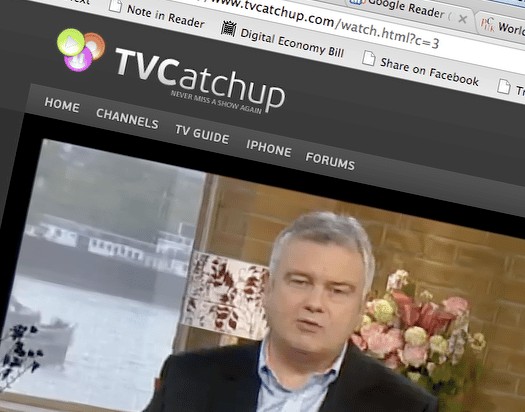
In the copyright case brought by UK broadcasters against the TV Catchup restreaming site, a UK High Court judge has handed the site some some in-case victories. But the ultimate question of legality will be settled by the Court of Justice of the European Union (CJEU).
ITV (LSE: ITV), Channel 4 and Channel Five sought an injunction to stop TV Catchup, which claims 5.5 million uniques, restreaming their live channels. Justice Floyd ruled provisionally this summer but deferred some judgements and said he would refer others to the CJEU. Now he has ruled on the matters…
Now the result is in of a parallel case, Floyd has ruled that, though TV Catchup’s servers do reproduce substantial parts of films, it had not been proved that the site, as a “rolling” (streaming) service, holds substantially large fragments of those films on its servers at any one time.
After this summer’s provisional ruling about TV Catchup’s broadcasts themselves, Justice Floyd also rules: “I cannot see any basis on which it can sensibly be argued that there is a reproduction of a substantial part of a broadcast except on the rolling basis.” He declined to refer the matter to the CJEU.
This summer, Floyd had said TV Catchup could defend itself under Section 73 of the Copyright Designs and Patents Act 1988, which allows services to retransmit broadcasts over cable. But that only applies if it broadcasts channels’ regionalised streams to corresponding regions, and not over mobile.
The broadcasters had appealed to the judge to refer this point to the European court. But Floyd has rejected their call, saying: “I think this is a veiled attempt to ask the CJEU to construe the provision of national law… There is no real scope for doubt.”
Floyd says: “Everything depends on whether (TV Catchup’s) use was lawful. That now depends on whether TVC’s activities amount to ‘communication to the public’.” On this, he is asking the CJEU…
- Whether the content owners can prohibit communication to the public of their content via third-party internet stream if that content has previously been authorised for communication via analogue means.
- Whether it makes any difference that TV Catchup ads pre-roll and in-skin ads over broadcasters’ streams and whether such a service is competing for revenue with broadcasters.
TV Catchup’s legal firm Hamlin’s says the referrals “will take several years before a decision is handed down by the CJEU”. “The nub of the European case law is the communication has to be a new public, ie. not the public the broadcasters initially send their broadcasts to. One of many examples would be a TV in a hotel bedroom. TVC’s position is very different as there is no new public.”
TV Catchup says: “TVC’s legal team is confident that this final hurdle amounts to little more than a formality. TVC is not only still here, but is now able to introduce a huge number of exciting developments that have been stalled as a result of mischevious legal action, strategically engineered to maximise financial collateral damage.”
The broadcasters issued a joint statement to paidContent: “In light of recent European case law, we are confident that the European court will find in our favour that TVCatchup is an infringing service. We reserve the right to pursue any site or service we believe to be infringing our copyright or using our content in an unlicensed, illegal capacity.”